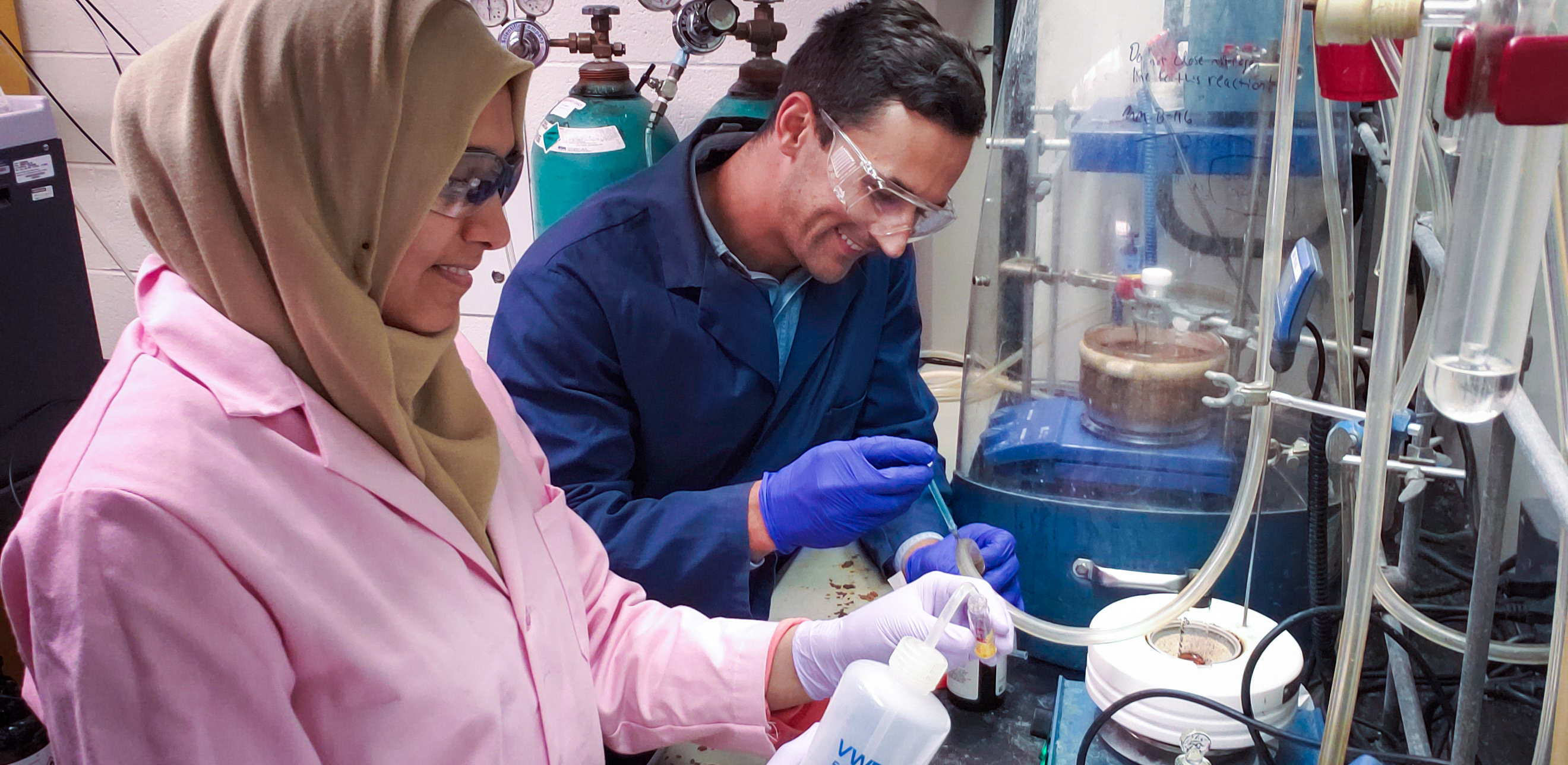Doctor of Philosophy (PhD)

Doctoral study in Chemistry at Loyola University Chicago is designed towards developing within students the foundational skills for industrial work, academic research, as well as teaching careers in diverse learning communities. The department of chemistry offers opportunities for graduate study in subfields of chemistry such as Physical & Surface Chemistry, Medicinal Chemistry, Theoretical Chemistry, Biochemistry and Chemical Education.
In keeping with the goal of fostering an atmosphere of scholarly independent study, Loyola maintains smaller group sizes to allow students to regularly engage their mentor with superior access to instrumentation. The community built between fellow graduate students and faculty facilitates our graduates in developing a more critical approach to scientific research as well as careers in industry. Engaged studies doesn’t end in the lab, our students are proud of the work they do in the Rogers Park area with local high schools and organizations. The relationships you form with your mentors and colleagues last a lifetime and assist you throughout future careers.
Career Outcomes
Students are well prepared for future careers in academic and industrial positions. Our teaching preparations allows PhD graduates to directly obtain liberal arts and community college positions. The rigorous research preparation sets up students well for subsequent research experiences or industrial employment. Check our our success stories on our Outcomes Page.
PhD Program Structure
Starting Fall 2023:
Students complete six formal courses. Students must take CHEM 401, and they must take at least one of the following:
-CHEM 424: Molecular Characterization- Part A
-CHEM 435: Current Topics
-CHEM 445: Molecular Characterization- Part B
-CHEM 455: Archeometry
-CHEM 465: Advanced Biochemistry
-CHEM 480- Chemistry for Teachers
The remainder of the 60 credit hours are research.
Students are encouraged to become proficient in statistics, computer programming, or languages of scientific importance as needed to conduct their research. Students must write and orally defend a research dissertation of publishable quality.
Next Steps
Request Information

Doctoral study in Chemistry at Loyola University Chicago is designed towards developing within students the foundational skills for industrial work, academic research, as well as teaching careers in diverse learning communities. The department of chemistry offers opportunities for graduate study in subfields of chemistry such as Physical & Surface Chemistry, Medicinal Chemistry, Theoretical Chemistry, Biochemistry and Chemical Education.
In keeping with the goal of fostering an atmosphere of scholarly independent study, Loyola maintains smaller group sizes to allow students to regularly engage their mentor with superior access to instrumentation. The community built between fellow graduate students and faculty facilitates our graduates in developing a more critical approach to scientific research as well as careers in industry. Engaged studies doesn’t end in the lab, our students are proud of the work they do in the Rogers Park area with local high schools and organizations. The relationships you form with your mentors and colleagues last a lifetime and assist you throughout future careers.
Career Outcomes
Students are well prepared for future careers in academic and industrial positions. Our teaching preparations allows PhD graduates to directly obtain liberal arts and community college positions. The rigorous research preparation sets up students well for subsequent research experiences or industrial employment. Check our our success stories on our Outcomes Page.
PhD Program Structure
Starting Fall 2023:
Students complete six formal courses. Students must take CHEM 401, and they must take at least one of the following:
-CHEM 424: Molecular Characterization- Part A
-CHEM 435: Current Topics
-CHEM 445: Molecular Characterization- Part B
-CHEM 455: Archeometry
-CHEM 465: Advanced Biochemistry
-CHEM 480- Chemistry for Teachers
The remainder of the 60 credit hours are research.
Students are encouraged to become proficient in statistics, computer programming, or languages of scientific importance as needed to conduct their research. Students must write and orally defend a research dissertation of publishable quality.
Next Steps
Request Information
